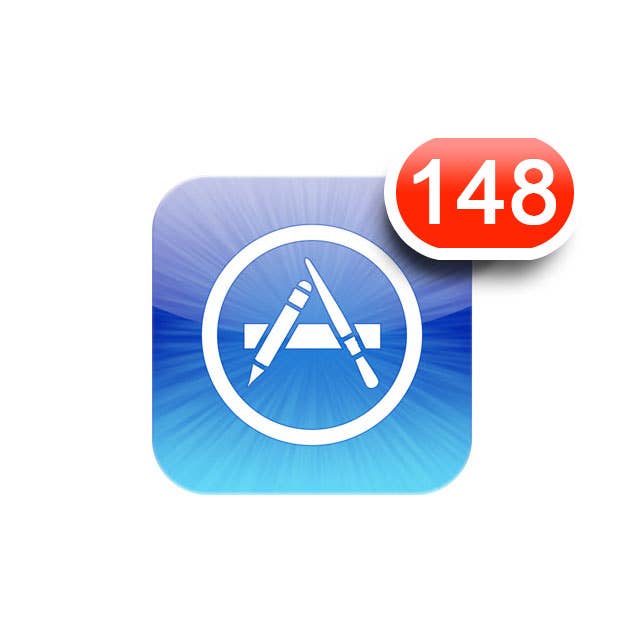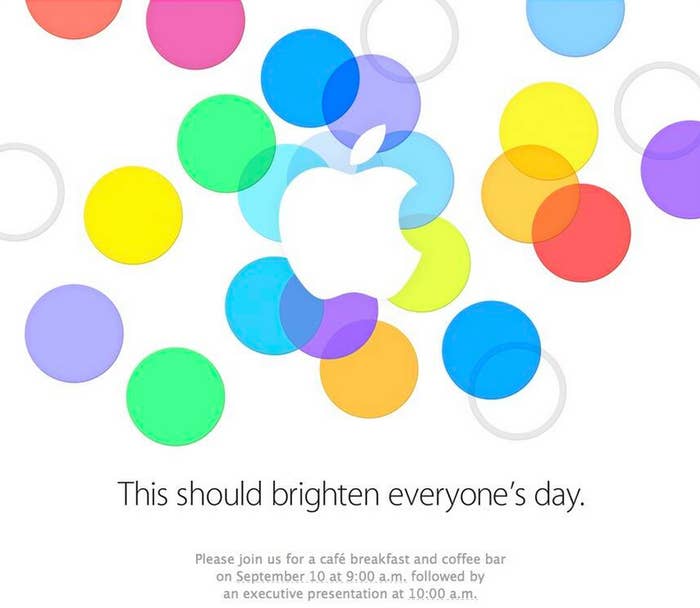
This afternoon, Apple sent out its exclusive invites for the company's Sept. 10 event, in which the company is expected to reveal its next-generation iPhones. Yet unlike other high-profile iPhone unveilings, Apple's main event isn't likely to unfold next week on stage, in front of a sea of eager tech journalists.
Instead, the company's big moment will play out almost immediately after the staged one, in the App Stores and settings screens of its millions of iOS users, as they download, relearn, and come to terms with the drastically remodeled iO7 operating system and the thousands of apps updated for it.
As always, there's not a ton to glean from today's invite, which possibly hints at a much-speculated-about new line of colorful iPhones. Notable, however, is Apple's choice to hold the event at a town hall meeting at Apple headquarters, instead of the large Moscone Center, the site of most of Apple's bigger productions. The choice of venue seems to suggest the event will be smaller, shifting the focus to iOS 7. Think iPhone 5S, not iPhone 6 — at least in terms of actual changes.

Unlike the new iPhones, which are rumored to look and feel similar to the iPhone 5, iOS 7 is a major leap, and will require most every app to undergo a drastic redesign, which will mean a completely new experience for the millions of iOS users across the world, including those who've had beta access since last June.
In many ways, this is the real test for Apple, which has left its now-iconic operating system largely untouched since its debut in 2007. Historically, there's always been a desire for the latest incarnation of iPhone, and there's little to suggest given the rash of leaks over the past few months that next week's announcement will contain any huge hardware bombshells. iOS 7, on the other hand, stands to be the most consequential Apple software update in recent memory. Users will not only be faced with an unfamiliar interface, but unfamiliar versions of their favorite apps — an experience akin to trying them out on Android or Windows Phone.
Next week, millions of contract-bound users will head to the App Store to download what is effectively a whole new phone.
It stands to reason that the iPhone unveiling itself will be a more subdued affair. The iPhone is a time-tested piece of hardware undergoing a small facelift; iOS 7, on the other hand, has seen a dramatic, full-scale reconstruction, meaning that Apple's pivotal moment won't take place during a well-choreographed Tim Cook keynote, but later, without fanfare but with very real consequences.
